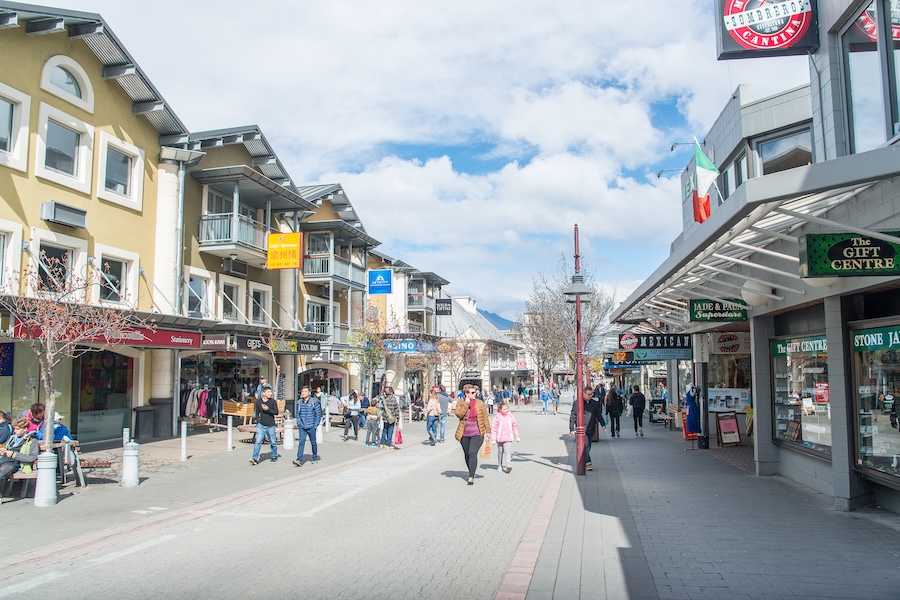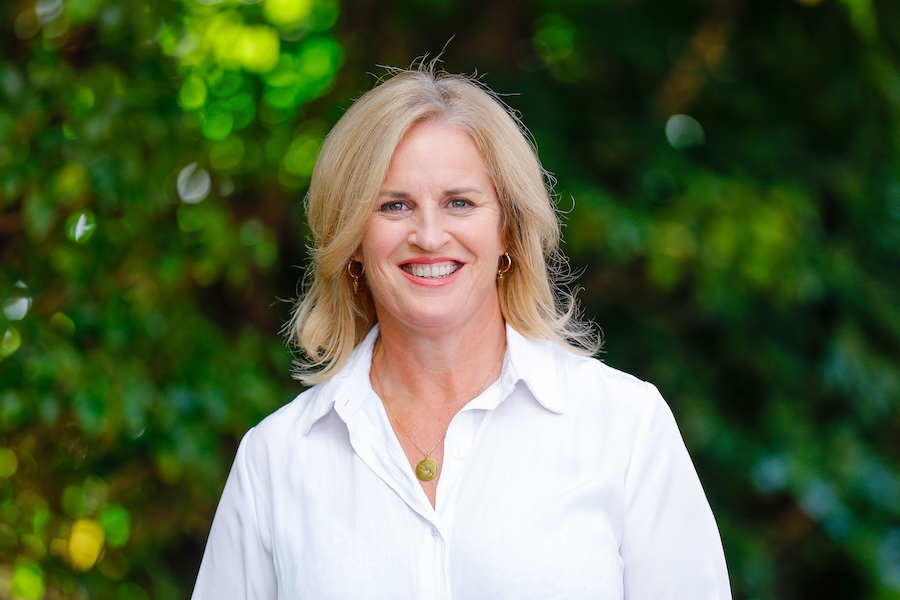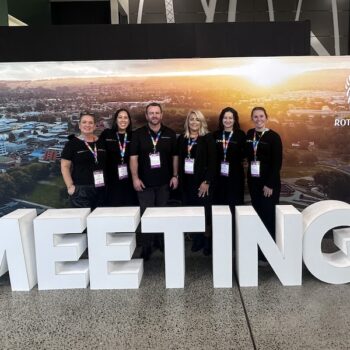Pictured above: Minister for Tourism and Hospitality, Louise Upston.
With hospitality businesses nationwide under significant pressure due to the current economic climate, newly appointed Minister for Tourism and Hospitality Louise Upston has much to do to help stimulate this significant GDP contributor. From boosting international visitors to tackling red tape and workforce challenges, the Minister shares how the she plans to support hospitality operators – especially SMEs – through a period of change.
Rising operational costs, chronic staffing shortages, and lingering uncertainty in consumer spending have created a tough environment for many hospitality businesses still recovering from the impacts of the COVID-19 pandemic.
It’s a reality I feel deeply, having worked in the industry myself. But you don’t need firsthand experience to understand the pressure – empty storefronts, the abundance of “for lease” signs, and the increasing reluctance to dine out tell the story just as clearly.
According to the Restaurant Association of NZ’s 2024 Hospitality Report: “While it is positive to see sales in the industry continue to grow, the period can best be characterised as one of mixed results. Despite the 5.8 percent annual growth, many operators report facing some of the most challenging times over the past 12 months.
For the year ended February 2023, there were 19,518 hospitality outlets around New Zealand. This reflects an overall increase of just 27 outlets over the year previous, according to the report, likely reflecting the many business closures seen in the past few years.
But it’s not all doom and gloom, the latest Tourism Satellite Account figures for the year ended March 2024 show a significant 59 percent increase in tourism spending, totalling more than $16 billion in revenue.
As New Zealand’s second-largest export industry, tourism continues to create jobs, stimulate investment, and reinforce the country’s global reputation as a premier destination. This uptick in visitor spending is a good sign for the hospitality sector.
Recently, the Prime Minister reshuffled his Cabinet, appointing Minister Louise Upston as the new Minister for Tourism and Hospitality. Following her appointment, I had the opportunity to interview Minister Upston about the state of the industry, her immediate priorities, and how the Government plans to support hospitality operators – particularly small and medium – as they navigate an increasingly complex and competitive landscape.
AT: Thank you for your time today. First question is, what are your immediate priorities for the hospitality sector in your portfolio?
LU: My first priority, having listened to the sector, is to ensure that we bring more international visitors into New Zealand. More international visitors mean more customers, which has been the clear message from the hospitality sector. Another key focus of the government has been addressing the cost of living. It’s great to see inflation dropping from 7.3 percent to 2.2 percent, but there’s still a lag effect. New Zealanders are a bit cautious about spending right now. As interest rate cuts take effect in the coming months, I think we’ll see more New Zealanders going out and spending in local hospitality venues. So, it’s a balance between continuing our work on the cost of living and, for me, in tourism and hospitality, ensuring that we grow the number of international visitors.
AT: Rising costs and staffing shortages are hitting hospitality hard. What immediate relief or support is being considered?
LU: My colleague, Minister Matt Doocey, did a lot of work with the hospitality sector, and the hospitality roadmap has been sent through. We’re working through the recommendations from the sector. In the meetings I’ve had, the workforce challenge has been raised, and I’m acutely aware of that. One of my goals is to see more Kiwis working in tourism and hospitality. I think there are great career opportunities in hospitality, and we need to do a better job of selling those opportunities to young New Zealanders who are considering their career paths.
AT: Why do you think it’s not seen as a viable long-term career by a lot of Kiwis?
LU: Even in the short time I’ve been Minister, I’ve heard a range of views, from hospitality being great while you’re a student, but not much else. I completely disagree with that because, if I think about some of the amazing hospitality business owners in Taupo, many of them have been in the sector for a long time. They’ve grown fantastic businesses and become employers themselves. We need to make the connection for young people that starting in hospitality can lead to becoming a business owner or entrepreneur, owning multiple hospitality sites. It’s an aspiration that’s completely achievable in New Zealand, and I think we need to connect the dots a bit more.

AT: There’s a huge skills shortage in hospitality. Anyone who has worked in the industry especially feels that. Are there any plans to address the skills shortage in hospitality?
LU: That’s a focus I’m looking at. I’m drawing from the work done at the end of last year with the sector and the hospitality roadmap because it’s important that the solutions come from the sector itself. Then, as government, we can figure out where we can best provide assistance and support. It’s too early for me to make definitive decisions about workforce, but I want to reiterate that I want to see more Kiwis working in hospitality. As we grow the economy, that’s a significant part of it, and I want to ensure New Zealanders benefit, both as employees earning higher incomes and as business owners sharing in that growth.
AT: With international tourism rebounding, how can SMEs better connect with large-scale tourism initiatives like Tourism New Zealand?
LU: I’ve been really encouraged by the direction of the sector so far. Whether it’s large or small businesses, there’s a lot of united direction, which is great. Tourism Industry Aotearoa and Hospitality New Zealand are well aligned with the Restaurant Association, which makes it easier for us to work together. When we bring international visitors into New Zealand, it’s about ensuring they have a great experience. We’ve got fantastic small businesses that do that brilliantly, alongside larger operators. More visitors mean more customers for everyone, and that’s the aim.
AT: The hospitality sector relies heavily on migrant workers, who are often vulnerable to exploitation. What’s being done to ensure fair pay and conditions for these workers?
LU: This is something Erica Stanford, the Minister of Immigration, is focused on. We need to get the balance right. Yes, we want more Kiwis in work, but there are skill shortages, particularly with chefs. Without those skilled workers, we can’t provide employment opportunities for others. There’s also a gap in hospitality during peak times, and that’s where working holiday visa holders often play a key role in propping up the local workforce. We must crack down on bad employers, but I believe this is a small number. Most employers do the right thing, and where they don’t, we need to deal with them harshly.
Read more: Minister Chris Penk on growing New Zealand’s SME sector
AT: Many small hospitality businesses have struggled with red tape. Are there any plans to streamline compliance and reduce regulatory burdens?
LU: That’s another area I’m hoping to get solutions from the hospitality roadmap. If we can reduce compliance and make it easier for businesses to operate, it will help them grow and succeed. I’m open to exploring areas where we can reduce red tape. We now have a minister for regulations, so it should be easier than it’s been in the past. We’ve already made steps in the employment space, like getting rid of fair pay bargaining and bringing back the 90-day trial. These changes have definitely made things easier for employers, and that’s what we want to continue to do.
AT: Do you think there needs to be more opportunity for wage growth in hospitality? The difference between a senior chef and an entry-level chef is often quite small. Is this something you’re interested in exploring further?
LU: Absolutely, we always want to see wages grow. I think hospitality has been criticised in the past for low wages, though some of this has been based on perception rather than reality. But when people enter a career, they want to know there are opportunities for career progression and higher incomes. One area to explore is how we can increase innovation and productivity. If we improve productivity in hospitality, it will help drive wages up.
AT: What are you hearing directly from hospitality business owners and workers, and how is that shaping your policy approach?
LU: I’m really encouraged by how motivated and enthusiastic everyone is. I know how challenging the last few years have been, but what’s really struck me is how positive the sector is. Business owners and workers are keen for government, industry, and businesses to work together, and that’s what I’m committed to. I’ve spent a lot of time listening and engaging with businesses and the sector to ensure the steps we take have the biggest impact. We won’t be doing everything, but we’ll focus on a smaller number of priorities. My plan is to identify what needs to be done immediately in the first 90 days, then look at the short-term goals up to 2026, and finally, consider medium and long-term actions. Together, we can deliver better results, meaning more visitors, more customers, and more opportunities for employment and higher incomes in hospitality.
The Minister’s focus is clear: To increase international visitor numbers, support local workforce development, and reduce regulatory burdens on hospitality businesses. With the industry looking toward recovery, the coming months will be important for setting a foundation that supports both small and large operators across the country, and the people that work for them.





